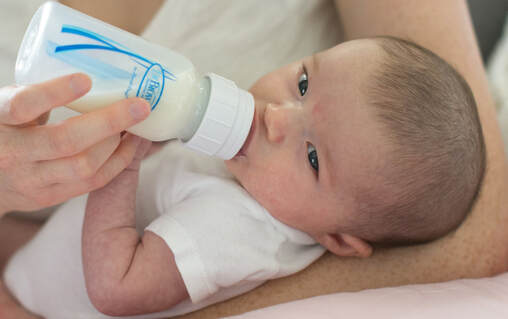Reflux Drugs Tied to Bone Fractures in Children
Infants are often given acid-suppressing medicines to treat gastroesophageal reflux, but the drugs may affect the bones.

By Nicholas Bakalar
July 5, 2019
Infants are sometimes treated for gastroesophageal reflux with acid-suppressing medicines, but a new study suggests that they may increase the risk for bone fracture later in childhood.
Researchers studied records of more than 850,000 children up to 14 years old. About 97,000 had received acid suppression medicines in their first year of life — 8,000 were prescribed proton pump inhibitors like Nexium; 71,000 took histamine-2 receptor antagonists like Pepcid; and 18,000 got both. The study is in Pediatrics.
After controlling for sex, preterm birth, obesity and other variables, they found that compared with those who did not get them, those given P.P.I.s before age 1 were at a 23 percent increased risk for fracture. There was a 31 percent increased risk when the infants took H2 antagonists at the same time. The risk increased with longer use, but did not rise when H2 antagonists were used alone.
Spitting up after a meal is common in infants. But gastroesophageal reflux disease can cause more serious problems, like frequent vomiting, difficulty eating and swallowing, and irritability.
The senior author, Elizabeth Hisle-Gorman, an assistant professor at the Uniformed Services University of the Health Sciences, said that “in the absence of a diagnosis of GERD, you should not put an infant on acid-suppressing medicine. Physicians should be judicious when contemplating using an acid suppressant.”
https://www.nytimes.com/2019/07/05/well/family/reflux-drugs-tied-to-bone-fractures-in-children.html
July 5, 2019
Infants are sometimes treated for gastroesophageal reflux with acid-suppressing medicines, but a new study suggests that they may increase the risk for bone fracture later in childhood.
Researchers studied records of more than 850,000 children up to 14 years old. About 97,000 had received acid suppression medicines in their first year of life — 8,000 were prescribed proton pump inhibitors like Nexium; 71,000 took histamine-2 receptor antagonists like Pepcid; and 18,000 got both. The study is in Pediatrics.
After controlling for sex, preterm birth, obesity and other variables, they found that compared with those who did not get them, those given P.P.I.s before age 1 were at a 23 percent increased risk for fracture. There was a 31 percent increased risk when the infants took H2 antagonists at the same time. The risk increased with longer use, but did not rise when H2 antagonists were used alone.
Spitting up after a meal is common in infants. But gastroesophageal reflux disease can cause more serious problems, like frequent vomiting, difficulty eating and swallowing, and irritability.
The senior author, Elizabeth Hisle-Gorman, an assistant professor at the Uniformed Services University of the Health Sciences, said that “in the absence of a diagnosis of GERD, you should not put an infant on acid-suppressing medicine. Physicians should be judicious when contemplating using an acid suppressant.”
https://www.nytimes.com/2019/07/05/well/family/reflux-drugs-tied-to-bone-fractures-in-children.html
